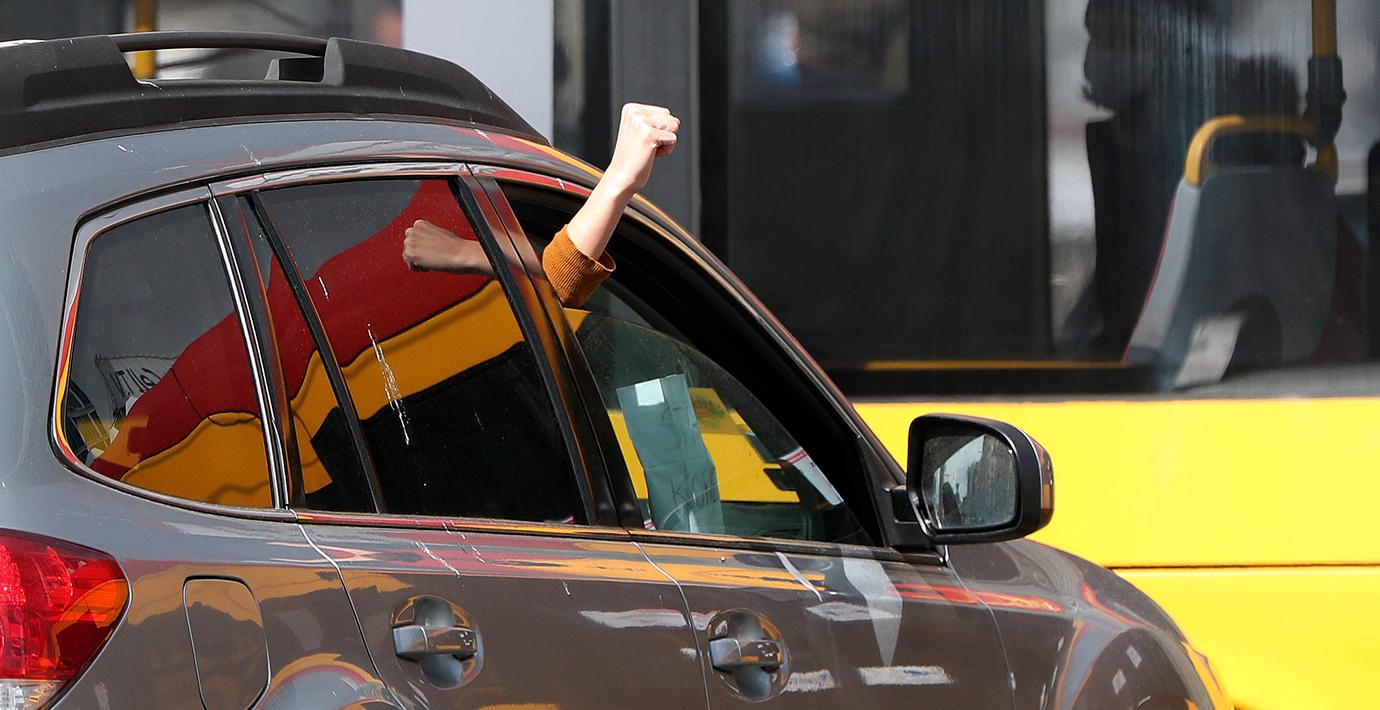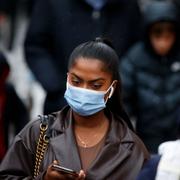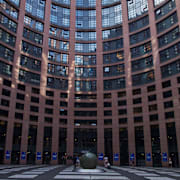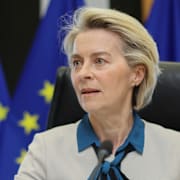
Omöjligt att demonstrera – då vill Polen ändra abortlag
Polens redan strikta abortlagar kan bli ännu striktare när landets parlament i dag ska diskutera frågan. Frågorna lyfts samtidigt som coronakrisen gör det omöjligt för demonstranter att ge sig ut på gatorna för att protestera, skriver flera medier.
– Att försöka genomföra de här vårdslösa bakåtsträvande lagarna när som helst skulle vara skamligt, men att snabbt gå fram med dem under skyddet av covid-19-krisen är samvetslöst, säger landets Amnesty-chef Draginja Nadazdin i ett uttalande.
Även 2016 försökte regeringen att gå fram med ett liknande förslag, men det tvingades man dra tillbaka efter massiva protester.
Läs mer (14 april)
bakgrund
Coronaepidemin i Polen
Wikipedia (en)
In February and March 2020, during the 2019–20 coronavirus pandemic, Polish health authorities carried out laboratory testing of suspected cases of infection by SARS-CoV-2, one of the seven known human coronaviruses, as well as home quarantining and monitoring. The first case of a laboratory confirmed SARS-CoV-2 infection in Poland was that of a man hospitalised in Zielona Góra, with confirmation announced officially on 4 March 2020. The local transmission phase of SARS-CoV-2 in Poland was declared to the World Health Organization on 10 March. The first death from coronavirus disease 2019 (COVID-19) in Poland was that of a 56-year-old woman on 12 March. Polish authorities did not participate in the 28 February 2020 European Union tender procedure for purchasing COVID-19 pandemic related medical equipment, in which 20 other member states participated. Poland applied on 6 March for the 17 March tender for the purchase of gloves, goggles, face protectors, surgical masks and clothing; the European Commission stated that all requests in the tender were satisfied by offers.As of 13 April 2020, there were 6,934 laboratory confirmed SARS-CoV-2 cases and 245 deaths, and there were 487 recoveries as of 13 April 2020.Lockdown-type control measures started on 10–12 March, closing schools and university classes and cancelling mass events, and were strengthened on 25 March, limiting non-family gatherings to two people and religious gatherings to six and forbidding non-essential travel. On 20 March, the Ministry of Health tried to prevent medical personnel from commenting on the pandemic. The Polish Ombudsman Adam Bodnar defended medical personnel's right to speak publicly about the epidemic on constitutional grounds of freedom of speech and the right of the public to information. Doctors opposed the self-censorship orders. Fatality counts initially only included deaths from lab-confirmed SARS-CoV-2 infection (U07.1). Starting on 1 April 2020, fatalities that were clinically or epidemiologically diagnosed as COVID-19 (U07.2)) were also considered as COVID-19 deaths by NIPH–NIH. As of 28 March 2020, people in Poland who died in quarantine from suspected COVID-19 were not tested post mortem for SARS-CoV-2. As of 29 March 2020, there were 269,307 people under quarantine for suspected SARS-CoV-2 infection and 42,783 SARS-CoV-2 tests had been made since the beginning of testing. The lockdown restrictions were tightened starting on 31 March–1 April by a government regulation, requiring individuals walking in streets to be separated by two metres, closing parks, boulevards, beaches, hairdressers and beauty salons, and forbidding unaccompanied minors from exiting their homes. The same regulation loosened the restrictions on public gatherings starting from 12 April, allowing religious and other gatherings to be held for up to a maximum of 50 people.
Omni är politiskt obundna och oberoende. Vi strävar efter att ge fler perspektiv på nyheterna. Har du frågor eller synpunkter kring vår rapportering? Kontakta redaktionen



